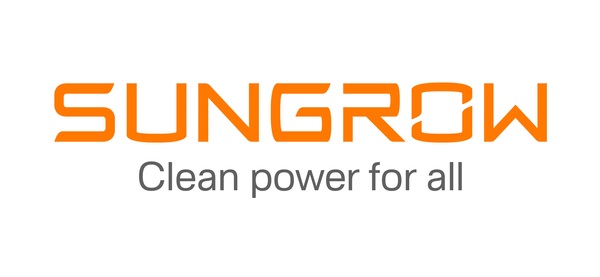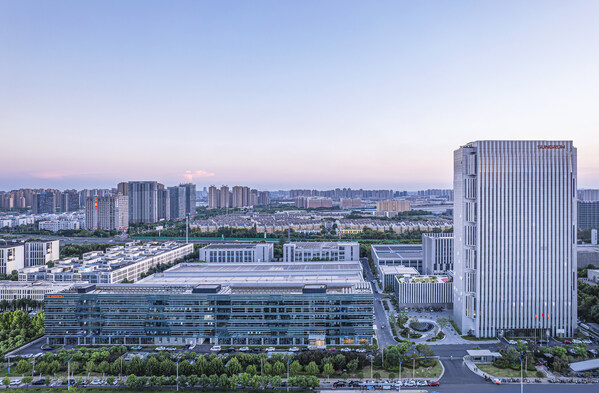Corporates Continue to Embed Sustainability in Core Business Strategies
- Written by PR Newswire

|
SHANGHAI, Oct. 24, 2024 /PRNewswire/ -- Amidst the evolving global energy landscape and a growing climate crisis, ESG-focused brands are playing a crucial role in creating a sustainable future. According to Thomson Reuters' Mid-year status report[1], 53% of 600 middle-market CFOs have integrated or are in the process of integrating sustainability principles into their core business strategy. Authentic sustainability disclosure is increasingly vital for the long-term development of corporations. The latest assessment by Morgan Stanley Capital International (MSCI) highlights several companies that are improving their ESG ratings, with notable examples such as Sungrow, a renowned renewable energy brand, achieving an 'AA' rating for its steadfast commitment to sustainability.
Over the years, Sungrow has marked many noteworthy milestones on the global stage, such as securing a substantial 7.8GWh grid-side energy storage order in Saudi Arabia and a significant 3GWh independent energy storage order in Australia. The brand is always at the forefront of revolutionizing the renewable energy landscape with a steadfast commitment to technological innovation. The ESG achievement underscores the brand's dedication to sustainable growth in businesses and sound climate actions towards a greener world.
The MSCI ESG assessment wields significant sway among investors globally, offering a thorough assessment of ESG practices of over 8,500 publicly listed companies worldwide. Meanwhile, the sustainable development practices of Sungrow have also been recognized by international organizations such as S&P Global and Boston Consulting Group (BCG) in recent years.
Highlights in ESG
According to the MSCI analysis[2], Sungrow is strongly aligned with the 4 Sustainable Development Goals (SDGs), including affordable and clean energy, industry, innovation and infrastructure, responsible consumption and production, and climate action. Furthermore, an Implied Temperature Rise of between 1.5 and 2.0°C indicates that the brand is in line with the Paris Agreement's long-term goal of limiting global mean temperature increase to below 2°C pre-industrial levels.
As per the sustainability report released at the end of 2023, the company reached a renewable energy usage rate of 55%, marking a significant increase. The energy consumption per unit of product production decreased by 6.75% compared to 2020, showcasing notable progress in sustainability efforts. Leveraging both technological and managerial energy-saving strategies, the company saved over 1300MWh of electricity throughout the year. Notably, Sungrow clinched the top spot among the top 10 constituents in the MSCI China A Onshore IMI Efficient Energy Index[3] as of September 30th.
Journey to a greener world
Embracing the philosophy of "Green Mission, Better Life", Sungrow focuses on clean energy, continuously bridging the green ecosystem and better life. The brand has crafted a sustainable development blueprint that concentrates on its key sectors of expertise.
- Clarify five sustainability strategic objectives
The Company actively promotes the five strategic goals of Excellent Governance, Towards Net Zero, Eco-friendly Development, Mutually Beneficial Collaboration, and Diversity and Inclusion.
- Formulate a multi-level strategic goal system
From a global perspective, Sungrow began benchmarking against seventeen SDGs in 2019. The company identified those most closely aligned with its business attributes and resource capabilities as key areas for sustainable and responsible operations, as well as crucial for ESG information disclosure. Notably, Sungrow has refined its focus from the initial twelve SDGs to the current ten. This adjustment not only reflects the ongoing evaluation of the SDGs but also underscores a clear strategic direction. Furthermore, the company effectively identifies strategic objectives and outcomes while integrating short-, medium-, and long-term goals to create a robust strategic framework.
Earlier this year, Sungrow unveiled its ESG objectives leading up to 2048, marked by a series of ambitious milestones, including pledging to achieve operational carbon neutrality by 2028, extending this commitment to its supply chain by 2038, and ultimately attaining net-zero status across its supply chain by 2048. Notably, 96.79% of its suppliers signed the Supplier Code of Conduct in 2023. These efforts underscore Sungrow's proactive approach to driving its suppliers and the broader industry towards a greener, low-carbon future.
Recent hurricane disasters in America and flooding in central and eastern European nations have garnered significant attention, highlighting the intricate connection between extreme weather events and climate change. Urgent action is needed to accelerate global climate action and the energy transition under the green consensus, where economical green energy will play a pivotal role. The theme for the upcoming COP29 in November is 'In Solidarity for a Green World.' Companies in the renewable energy sector, such as Sungrow, that prioritize ESG are making significant strides in combating climate change and facilitating a just energy transition for the world.
CONTACT: Mina Zhang, mina.zhang@cn.sungrowpower.com[4]
Source: Sungrow Power Supply Co., Ltd.
References
- ^ Thomson Reuters' Mid-year status report (www.thomsonreuters.com)
- ^ MSCI analysis (www.msci.com)
- ^ MSCI China A Onshore IMI Efficient Energy Index (www.msci.com)
- ^ mina.zhang@cn.sungrowpower.com (www.prnasia.com)
Read more https://www.prnasia.com/story/archive/4539295_AE39295_0








